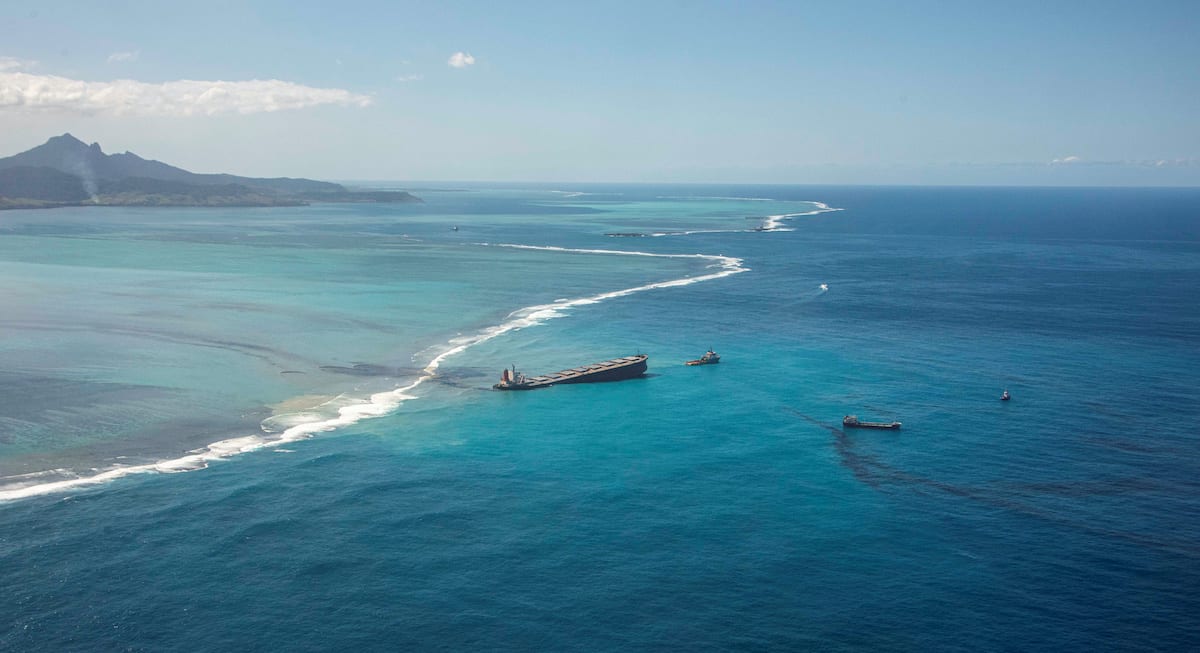Investigation Reveals Shocking Failures in Wakashio Oil Spill Disaster
Negligence Unveiled in Mauritius Maritime Disaster

Five years after the catastrophic grounding of the MV Wakashio off the coast of Mauritius, a long-awaited Court of Investigation report has exposed shocking negligence and systemic failures that led to the island nation’s worst maritime environmental disaster. The report reveals that crew distractions, particularly a focus on mobile internet access, took precedence over essential navigation duties, culminating in the vessel’s grounding on July 25, 2020.
Critical Failures and Negligence Uncovered
The 300-meter-long ore carrier, registered under the Panamanian flag, ran aground near Pointe-d’Esny, approximately 900 meters from shore, while en route to Brazil. The investigation highlights a series of critical failures that contributed to the disaster. Notably, the Chief Officer on duty prioritized accessing mobile network communications to contact family over maintaining a safe navigational watch. The report states, “Access to mobile network communications to contact the family took precedence over his first and foremost duty to keep a safe navigational watch during his hours of duty.”
Further compounding the negligence, the Master of the vessel had consumed alcohol during a crew member’s birthday celebration, which included two drinks of whisky before returning to the bridge. The vessel’s Voyage Data Recorder (VDR) captured conversations among the crew that focused on drinking and internet access rather than navigation safety. The report also reveals that the Master intentionally navigated close to the coast to obtain mobile signals, entering territorial waters without notifying authorities. When the vessel was dangerously close to land—just 1.5 miles offshore—the Master failed to take command as required by company protocols.
In a particularly alarming incident, the Chief Officer permitted a Cadet Officer to skip lookout duties to attend the party, demonstrating a blatant disregard for safety protocols. The investigation also criticized the National Coast Guard for its failure to detect the vessel’s perilous trajectory, despite it being visible on radar. Poor coordination among various authorities resulted in slow and contradictory decisions that delayed necessary actions following the grounding.
Houthis Allow Salvage Crew & Ships To Access Oil Tanker They Set on Fire in The Red Sea
Environmental Impact and Recommendations for Change
The grounding of the MV Wakashio had devastating consequences for the local marine ecosystem. Salvors attempted to stabilize the vessel by filling a hold with seawater, but cracks developed in the hull, leading to the ship breaking apart and spilling approximately 1,000 tons of heavy oil into the surrounding waters. This incident has raised significant concerns about the environmental impact and the effectiveness of existing contingency plans.
The report recommends that Mauritius implement a mandatory reporting system for vessels operating within a designated coastal zone and update its nearly two-decade-old oil spill contingency plan. The release of the report comes after the election of a new government, which has made the findings public after the previous administration deemed them too sensitive. Captain Sunil Kumar Nandeshwar and First Mate Hitihamillage Subodha Janendra Tilakaratna have already pleaded guilty to charges of endangering safe navigation under the Merchant Shipping Act.
The full report is now available for public access, shedding light on the systemic failures that led to this tragic event and calling for urgent reforms to prevent future maritime disasters.
